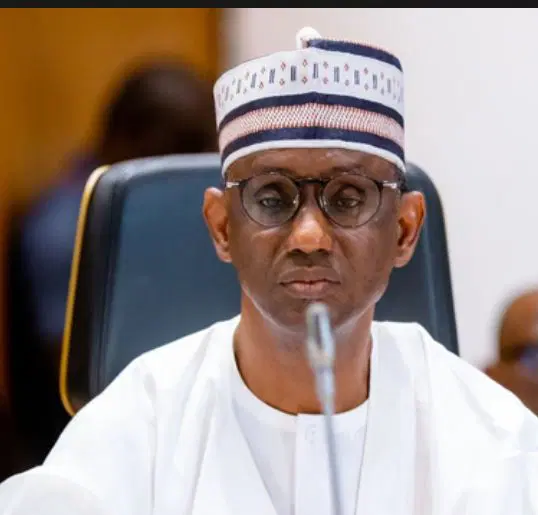The National Security Adviser (NSA), Nuhu Ribadu, has strongly refuted claims made by former Kaduna State Governor, Nasir El-Rufai, alleging that the Office of the NSA coordinated ransom payments and incentives to bandits.
In a statement released on Monday and signed by Zakari Mijinyawa, Adviser in the Office of the NSA, Ribadu described El-Rufai’s comments as “baseless” and “contrary to verifiable facts.”
El-Rufai, during a recent interview on Channels Television, had accused the NSA of adopting a policy that involved financially engaging with criminal groups, a statement that has since sparked widespread criticism.
“The attention of the Office of the National Security Adviser (ONSA) has been drawn to comments made by the former Governor of Kaduna State, Mallam Nasir El-Rufai, in a television interview on Sunday,” the statement read.
“In that interview, he alleged, falsely, that the ONSA coordinates a policy of payments and offers incentives to bandits. This claim is baseless. At no time has the ONSA, or any arm of government under this administration, engaged in ransom payments or inducements to criminals.”
Ribadu’s office emphasised that, from the outset, the Tinubu administration has adopted a two-pronged approach to national security, combining “decisive kinetic operations” with “community engagements” to tackle insecurity, especially in areas like Kaduna State.
READ ALSO: Ribadu confirms capture of two most-wanted terrorists in Nigeria
The NSA also noted that numerous bandit kingpins operating in Kaduna, including Boderi, Baleri, Sani Yellow Janburos, Buhari, and Boka, have either been eliminated or captured, thanks to the ongoing efforts of Nigeria’s military and security forces.
“These successes came at a cost; some of our brave officers paid the supreme price,” the statement added. “For a former governor to deny these sacrifices on national television is both unfair and deeply insulting to the memories of our security personnel.”
The NSA’s office further cautioned political figures, including El-Rufai, against dragging national security institutions into political battles.
“The fight against banditry is a collective struggle, not a platform for political point-scoring,” the statement concluded.



